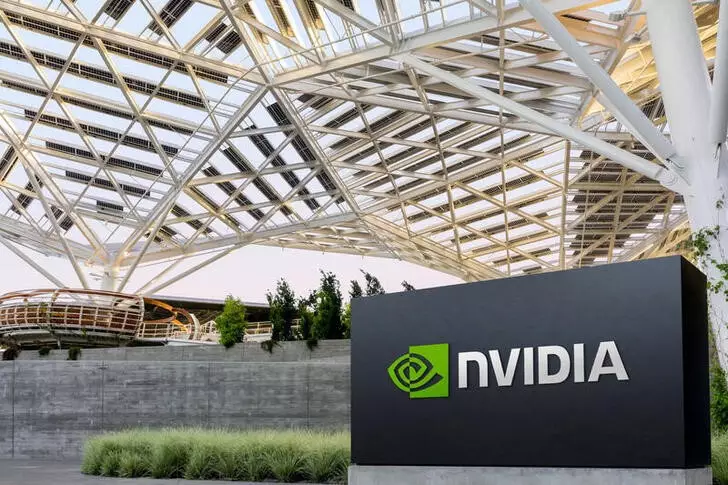On a recent Monday, the Chinese government unveiled an investigation into Nvidia, the American tech giant renowned for its advancements in artificial intelligence and gaming hardware. This inquiry is perceived not merely as regulatory action but as a strategic countermeasure in the backdrop of escalating tensions between Washington and Beijing. The State Administration for Market Regulation’s announcement did not specify the accusations against Nvidia but highlighted concerns regarding potential violations of China’s anti-monopoly legislation and commitments made during Nvidia’s acquisition of Mellanox Technologies, an Israeli chip designer.
The context of this probe is steeped in a broader narrative of economic and technological rivalry between the two superpowers. The U.S. government has introduced stringent measures aimed at curbing Chinese access to advanced semiconductor technology, raising the stakes in this fraught landscape. With such developments, it is crucial to analyze the implications of China’s investigation into Nvidia and what it signifies for the global tech industry.
The investigation into Nvidia is intricately linked to the ongoing trade war that has characterized U.S.-China relations over the past several years. Washington’s latest sanctions, which target numerous Chinese firms, reflect a growing concern over technological dominance and national security. The U.S. has restricted sales of advanced chip models, including Nvidia’s A100 and H100 chips, directly impacting Nvidia’s operations and market share in China.
In response, the Chinese government, through various industry bodies, has advised domestic companies to reconsider their reliance on American chip manufacturers, labeling U.S. chips as “no longer safe.” This narrative serves as a rallying point for China’s indigenization effort in the semiconductor arena, pushing for the development of local alternatives. Nvidia’s stock experienced a notable decline of 2.5% following the announcement, indicating the financial market’s sensitivity to geopolitical developments.
For Nvidia, the implications of the probe present a complex landscape. The company’s spokesperson emphasized its commitment to maintaining high standards and being transparent with regulators. However, sceptics in the industry, such as Bob O’Donnell from TECHnalysis Research, suggest that the immediate effects of this inquiry may be minimal. Most of Nvidia’s premier products have already been barred from the Chinese market due to existing U.S. restrictions, potentially limiting the overall impact of the investigation on Nvidia’s revenue.
Despite holding a dominant market share in China’s AI chip sector, accounting for over 90% before the sanctions, Nvidia is indeed facing intensified competition from local players, notably Huawei. The escalation of these tensions has already resulted in a shrinking share of revenue from China, marking a decline from 26% two years prior to just around 17%. It highlights the fragility of the company’s reliance on one of its largest international markets.
The investigation could symbolize a turning point in how multinational companies navigate their operations within China. Nvidia’s prior experience during its acquisition of Mellanox illustrates the complex agreements foreign firms must adhere to, which aim to promote fair trade practices while balancing performance with compliance in a rapidly evolving market. The conditions set forth during the acquisition highlighted the pitfalls of oversimplifying relationships within the context of U.S.-China trade tensions.
Conversely, the Chinese government’s recent actions signal an understanding that it needs to fortify its own technological landscape amid external pressures. Previous cases, like the investigation of Qualcomm, reveal that China is willing to enforce its anti-monopoly laws stringently to protect its markets and industries, demonstrating a trend that may continue as the sector evolves.
The inquiry into Nvidia serves as a poignant reminder of the intricacies of the ongoing U.S.-China technological rivalry. As both nations maneuver through trade sanctions and regulatory scrutiny, companies like Nvidia must recalibrate their strategies to adapt to a shifting landscape that combines elements of competition, cooperation, and compliance.
In the immediate future, Nvidia’s prospects in China remain uncertain as the company’s stronghold is challenged by both regulatory barriers and local competition. Nonetheless, this investigation could ultimately serve as a catalyst for both American and Chinese firms to rethink their approaches in a landscape where technological superiority becomes increasingly paramount. As this saga unfolds, it will be vital for stakeholders on both sides to consider not only the immediate ramifications but also the broader implications for the global tech industry.

